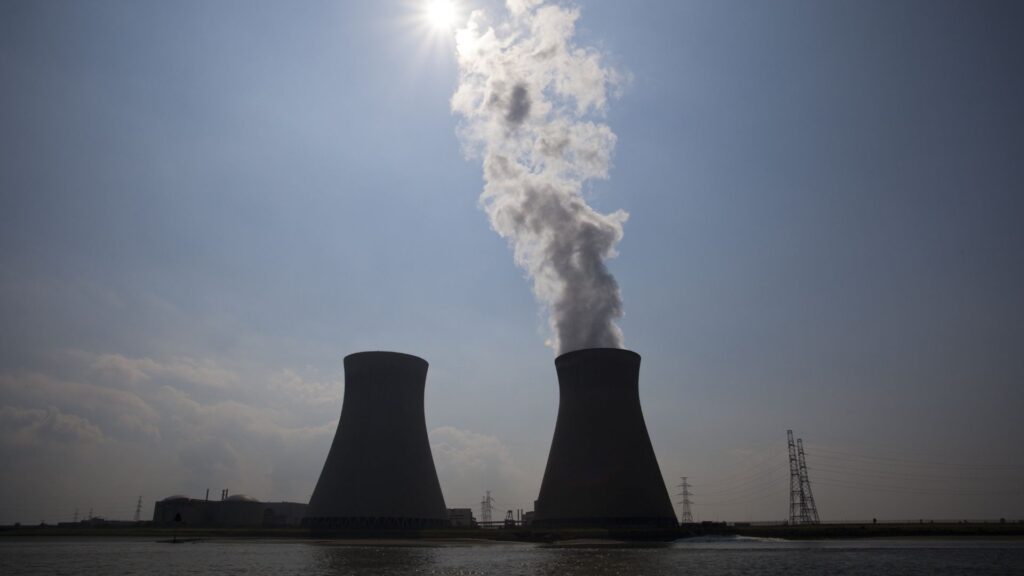Clean energy goals: Understanding the PH-U.S. nuclear energy deal
Nuclear energy: A new era of sustainable power?

Picture for illustrative purposes only.
The nuclear energy deal between the Philippines and the United States took effect on July 2. Known as the “123 Agreement,” it aims to transform the Philippines’ energy landscape through collaboration on clean energy and energy security.
On July 8, the U.S. Department of State announced that the agreement will boost cooperation on clean energy and strengthen long-term diplomatic and economic ties between the two nations.
“This Agreement builds on the nearly 80 years of peaceful nuclear cooperation between our nations and establishes a framework for continued U.S. civil nuclear trade with the Philippines. This Agreement is part of broader U.S. efforts to develop the Philippines’ civil nuclear sector,” the report said.
READ: PH-US civil nuclear energy pact enters into force
As global energy security becomes an increasingly critical challenge, the collaborative efforts of the Philippines and the United States are poised to make a huge contribution to shared clean energy goals.
The agreement allows the transfer of nuclear materials, equipment, and information for civil nuclear energy production, ensuring all activities follow International Atomic Energy Agency safeguards and other key standards.
‘123 Agreement’
In November 2023, President Ferdinand Marcos witnessed the signing of the pact on the sidelines of the Asia-Pacific Economic Cooperation Summit.
The US has 23 civil nuclear agreements with other countries, including Russia, China, Canada, South Korea, the United Kingdom, Japan, Taiwan, Turkey, Ukraine, the United Arab Emirates, and Vietnam.
In his speech, he said the agreement would ensure a “more energy secure and green Philippines,” adding that he was optimistic that nuclear energy would become part of the Philippine energy mix by 2032.
“We would be more than happy to pursue this path with the United States as one of our partners,” he told Blinken and other US officials, saying he was looking forward “to seeing this agreement in action in the years to come.”
According to Marcos, nuclear energy is one area where where the Philippines and US could show that the alliance and partnership “truly works – for our peoples, our economies, and the environment.”
READ: PH, US sign landmark ‘123 agreement’ on nuclear energy
During the recent media seminar hosted by the U.S. Embassy in the Philippines’ Public Affairs Section in Iloilo City, Colette Honorable, executive vice president, public policy, and chief external affairs officer at Exelon, explained the significance of the 123 Agreement.
Exelon is the leading energy company in the United States, which advances clean energy solutions, including nuclear energy.
Honorable stated that the agreement, signed on November 16, 2023, at the APEC Summit in San Francisco, is designed to facilitate and enhance cooperation on clean energy security.
She outlined the key provisions of the agreement, which include the transfer of nuclear equipment and materials for peaceful uses, collaboration on deploying advanced new technologies, and a mutual commitment to nuclear non-proliferation.
Nuclear’s advantages and disadvantages
Recent studies show the potential of nuclear energy as a viable addition to the Philippines’ energy mix. A 2023 working paper from the Ateneo Center for Economic Research and Development reveals the advantages of incorporating nuclear energy, particularly small modular reactors (SMRs).
These reactors, generating less than 300 megawatts per module, offer a cost-effective solution for distributed generation, especially in the archipelagic context of the Philippines with its numerous off-grid areas.
However, the paper also pointed out the necessity for rigorous and transparent scientific studies to address safety concerns, particularly in light of the controversy surrounding the Bataan Nuclear Power Plant.
READ: Gov’t wants more PH firms to invest in nuclear energy
The Bataan Nuclear Power Plant (BNPP) is a nuclear power plant located in Morong, Bataan, Philippines. It was completed in the 1980s but was never operationalized due to concerns about safety, corruption allegations, and the aftermath of the Chernobyl disaster in 1986, which heightened global nuclear safety concerns.
The BNPP has since been a subject of debate and discussion regarding its potential revival or decommissioning, with various proposals and studies over the years exploring its future use or closure.
According to the study, public acceptability and effective risk management are critical to the successful integration of nuclear power into the country’s energy portfolio.
READ: The path to nuclear energy
Why Cebu needs more power investments to secure future demand
In a similar vein, the Philippine Institute for Development Studies (PIDS) published an article discussing the strategic shift from fossil fuels to cleaner energy sources in response to the global climate crisis.
Nuclear energy, known for its low greenhouse gas emissions, presents a compelling alternative to traditional fossil fuels.
The International Atomic Energy Agency (IAEA) reported that nuclear electricity generation emits significantly lower greenhouse gases compared to coal-fired power plants, which makes it a crucial component in the fight against climate change.
While nuclear energy offers significant potential benefits, such as high energy output and lower greenhouse gas emissions compared to fossil fuels, it also carries substantial risks.
These risks include nuclear accidents, radioactive waste disposal challenges, high initial costs, and concerns about nuclear proliferation. /clorenciana
Disclaimer: The comments uploaded on this site do not necessarily represent or reflect the views of management and owner of Cebudailynews. We reserve the right to exclude comments that we deem to be inconsistent with our editorial standards.
